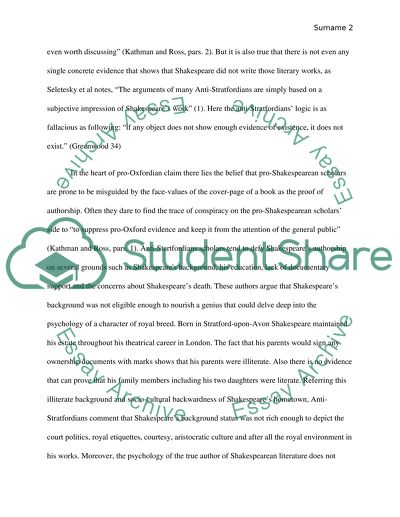Cite this document
(“Shakespeare: A Question of Authorship Research Paper”, n.d.)
Retrieved from https://studentshare.org/literature/1463960-shakespeare-a-question-of-authorship
Retrieved from https://studentshare.org/literature/1463960-shakespeare-a-question-of-authorship
(Shakespeare: A Question of Authorship Research Paper)
https://studentshare.org/literature/1463960-shakespeare-a-question-of-authorship.
https://studentshare.org/literature/1463960-shakespeare-a-question-of-authorship.
“Shakespeare: A Question of Authorship Research Paper”, n.d. https://studentshare.org/literature/1463960-shakespeare-a-question-of-authorship.


